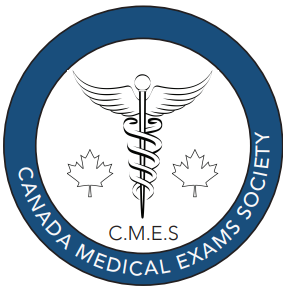Sexually transmitted infections, or STIs, are widespread throughout the world, including in developed countries like Canada.
All people, including students in Canada, should be aware of the risks, treatments and precautions regarding Sexually Transmitted Infections.
STIs affect all genders, and half of all infections occur in people that are younger than 25 years old. STI infections can happen after exposure to an infected person via sexual contact. Contact of genitals, mouth and rectum are a few examples of sexual contact. Other modes of exposure include sharing needles and breastfeeding. Learn More
Groups of Sexually Transmitted Infections
Sexually transmitted infections can be benign or become a serious health risk. There are three main groups of STIs. These are:
- Viral infections, such as HIV and genital herpes. Read More
- Bacterial infections, such as Chlamydia and Gonorrhea. Read More
- Parasitic infections, such as Trichomoniasis and Pubic Lice. Read More

Signs of Sexually Transmitted Infections
The signs and symptoms of an STI range widely and depend on the particular infection. Sometimes, signs are not noticeable and therefore may go unnoticed and untreated. Therefore it is very important to go for routine medical exams and STI tests, especially if you have multiple partners and do not use protection. High risks of infections include infertility and in some cases, death. Get an STI test whenever necessary.
Preventative Measures
Preventative measures for STIs include learning about different types of infections and making informed decisions regarding safe sex practices. One common and effective method of protection against STIs is condom use. Especially when you use it consistently and properly. Condoms are 98% effective against most STIs, such as Chlamydia and Gonorrhea. However, infections that spread from skin-to-skin contact, such as herpes and genital warts, may occur even with condom usage.

Treatments
Treatments also range, depending on the type of infection you contract. STIs that are transmitted through viruses or bacteria can often be treated by a course of antibiotics. Other infections, such as skin lesions due to genital warts or herpes, can only be treated topically. Lastly, some infections cannot be cured such as HIV. However, new antiretroviral therapies can help those infected live long, healthy lives and prevent transmission to others. Because of the risk of passing infections along to other people you come into contact with, it is very important to perform routine STI tests and medical exams.

Sexually Transmitted Infection Testing is Free
If you are living in British Columbia, the MSP(Medical Services Plan) covers STI testing via blood work and cultures. Therefore, you should not hesitate to go for routine medical exams and STI tests if living in BC and are sexually active.
There are many free clinics that perform medical exams and STI testing to choose from in Lower Mainland BC. MSP reimburses the screening fee for sexually transmitted infections. To find a clinic near you, as well as hours of operation, visit this website.
In Canada, STIs are a very real and common issue. The most common infections are Chlamydia and Human Papillomavirus (HPV). These are the most common because symptoms are often not noticeable. Therefore without knowledge, they can be passed along. Often, discussing safe sex practices and STI testing can be a challenge with the social stigmas. This is why it is important to read about it, take precautions, and go for routine tests and medical exams, even if you are not aware of any symptoms.

For more details on Sexually Transmitted Infection, don’t hesitate to ask your doctor during the Student Medical Exam.
Thank you for reading our blog. For more click here
Feedback and Suggestions for other blog topics are warmly welcome.
